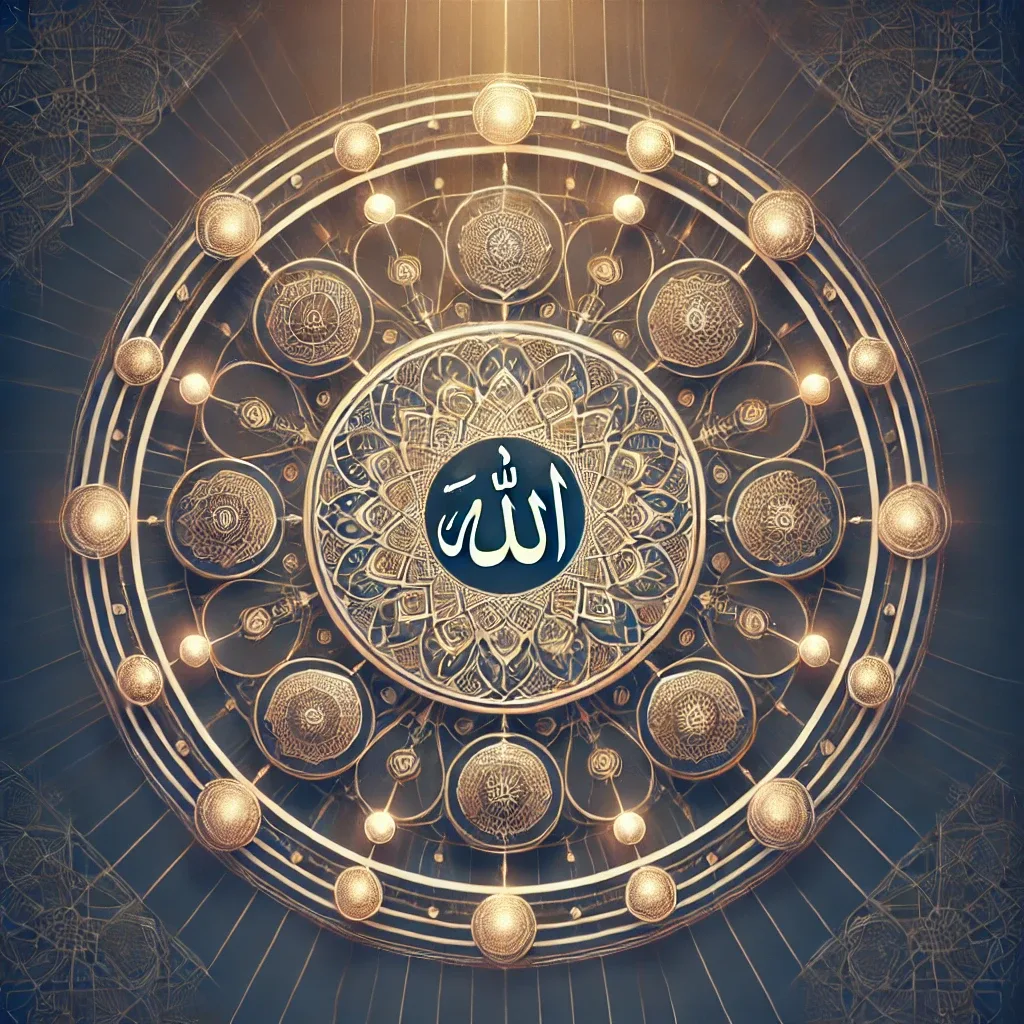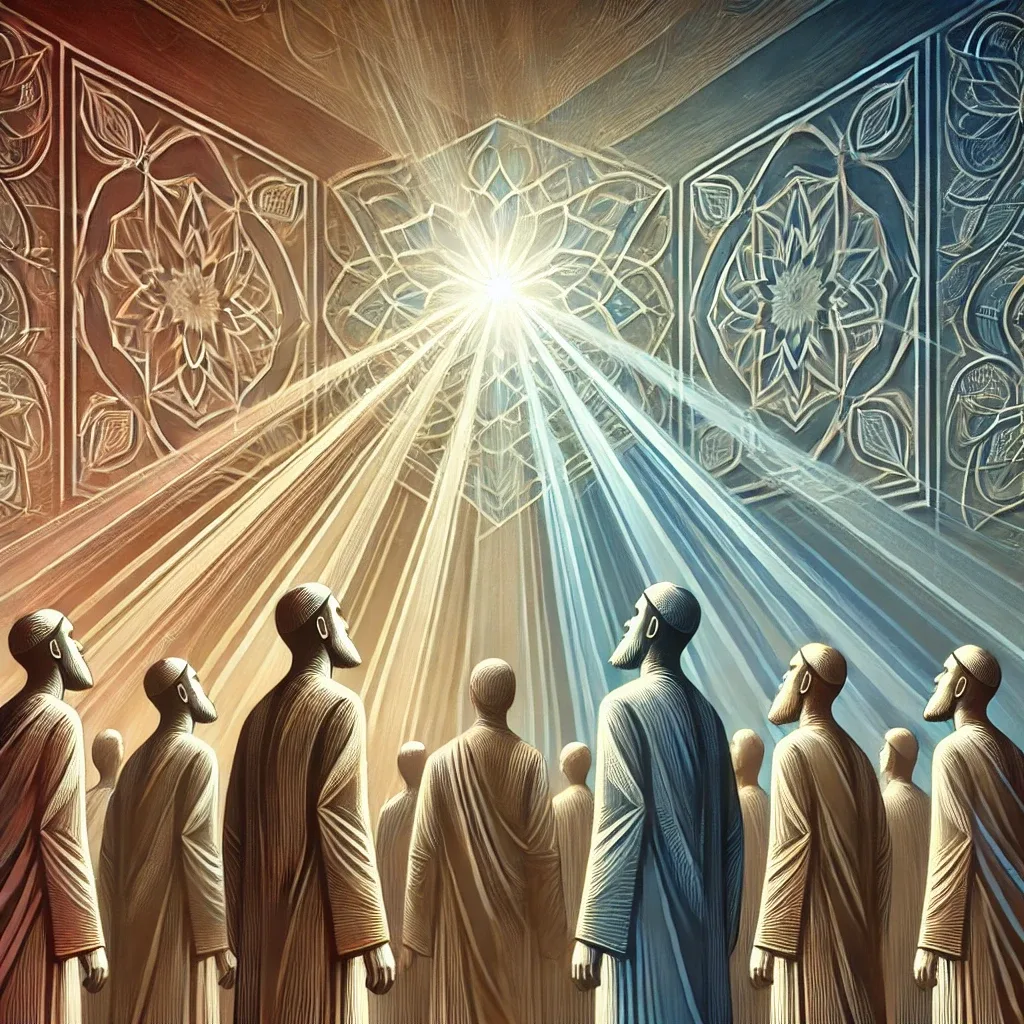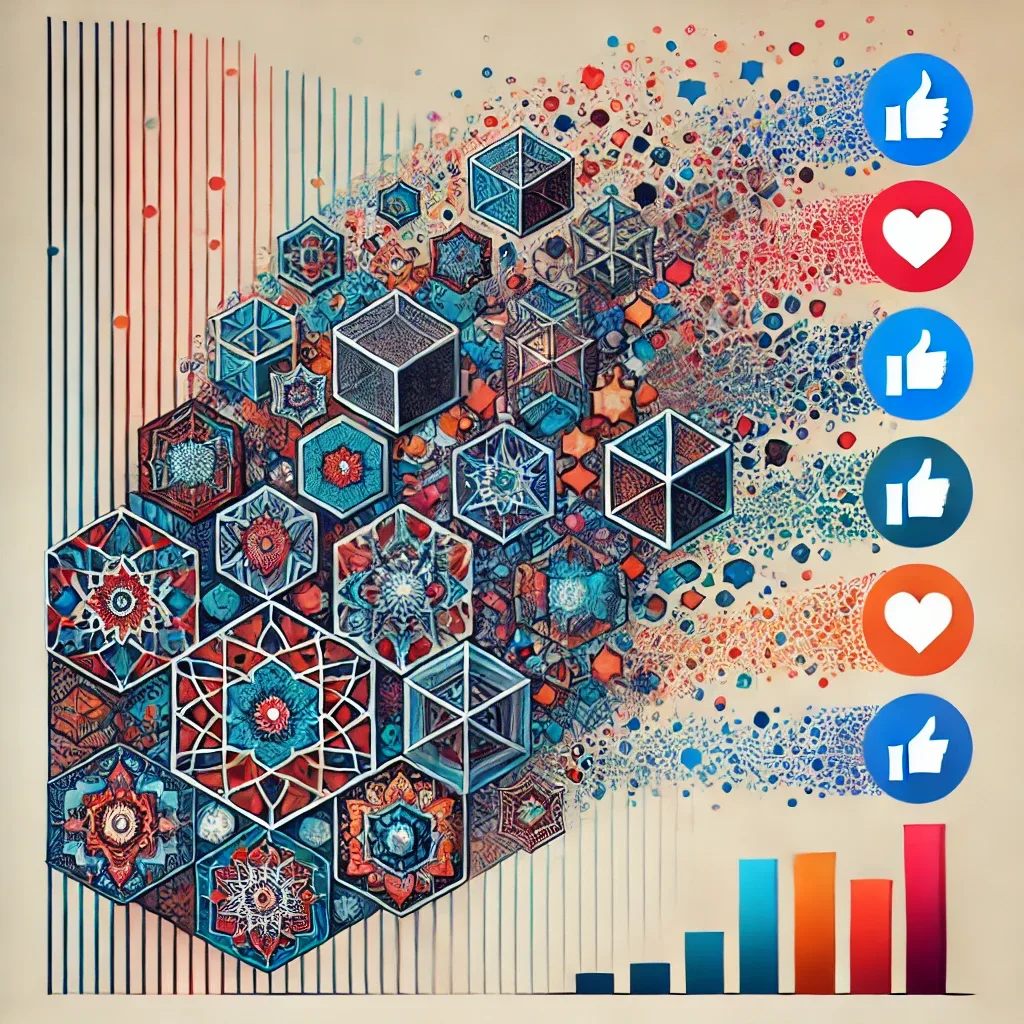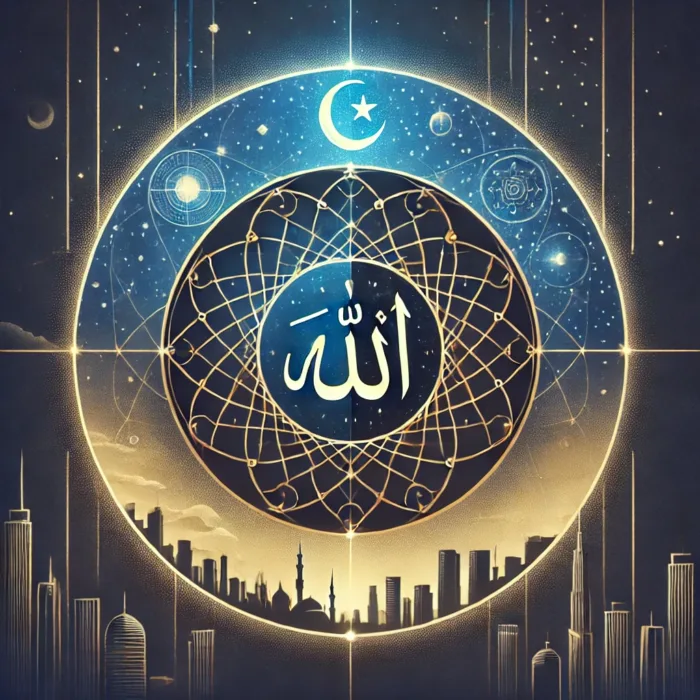Table of Contents
Introduction
This is the sixth article in the ‘Be Proud of Your Islam‘ series. It focuses on the essential distinction between two opposing concepts: “The Divine Centrality“, where the value of all things comes from ALLAH and HIS commands, and “The Human Centrality“, where value is based on human needs and desires. Click here to explore the full series.
Understanding Centrality in Islamic Perspective
The original plan for this article was to discuss how Muslims should treat non-Muslims, demonstrating the perfection of Islamic law on this matter. However, I believe it’s important to first address a deeper issue—one that, if understood properly, could resolve many of our intellectual challenges. This issue is the concept of centrality in a Muslim’s life: Is it centered around the Creator, the Almighty, or around humans?

What does centrality mean? It refers to the understanding that ALLAH is the source of value. Human worth is determined by how they stand before ALLAH, and principles gain their significance based on their alignment with ALLAH’s will. What is considered sacred—whether an object or a principle—is sacred only because ALLAH makes it so.
In contemporary times, Jahiliyyah (ignorance) is often seen as being based on human centrality. However, in reality, it is driven by human desires and passions. As the Quran says,
“Have you seen he who has taken as his god his [own] desire…”1
(Suraat ‘Al-Jaathiyah, 45:23)
We must be cautious, as this tendency to elevate desire has subtly crept into the minds of many Muslims, affecting us all. This is why this topic is important for you, for me, and for all of us.
The Conflict Between Divine and Human Centrality
Human centrality means taking sacredness away from ALLAH and attributing it to humans, where the value of things is determined by their relationship to human needs and desires. If someone invents something that benefits people, they are seen as valuable. If someone discovers a cure for a disease, their value increases, regardless of their standing before ALLAH. In this view, disbelief in ALLAH does not reduce one’s value.
Under human centrality, anything that satisfies human desires is considered right, a right that is protected and legitimized by law. When humans are at the center, beliefs are valued simply because people hold them. Their worth grows with the number of believers, even if the belief itself is inherently absurd. Conversely, if no one believes in it, it has no value, regardless of its inherent truth.
According to this framework, the Prophets (Peace be upon Them) would have no special status. If they were among us today, human centrality would mean their divine revelations, sent by the Creator of humans, would not set them apart. They would be viewed as just one opinion among many, equal to the views of the most immoral or disbelieving people. In the context of human centrality, even the Creator is sacred only if humans choose to sanctify HIM.
The Islamic Perspective on Divine Centrality
Islam is founded on the principle of divine centrality, which means that an action or principle is deemed right if ALLAH validates it, and wrong if ALLAH invalidates it. People gain their value through their submission and servitude to ALLAH, and they lose their value through disbelief in HIM.

But what does it mean to “lose their value”? Does this imply they lose all rights and become dispensable? Not at all. It means that the Creator, who holds centrality, is the one who defines their rights and responsibilities.
In Islam, if I work for the benefit of others, this increases my value before the Creator of all humans, provided I am a believer in HIM and seek HIS reward. In contrast, in human centrality, the sacred loses its value if people disbelieve in it. However, in Islam, it is humans who lose their value if they disbelieve in what is sacred. This is clearly the correct and just perspective.
Divine Authority and Human Purpose
ALLAH Almighty declares:
“Unquestionably, HIS is the creation and the command…“2
(Suraat ‘Al-‘Acraaf, 7:54)
Just as HE is the Creator, glory be to HIM, HE alone has the right to command and prohibit, and to determine what is right or wrong, valuable or worthless. When I say that I am Muslim, it means I submit, acknowledge, and affirm that centrality belongs solely to the Creator.
This meaning is beautifully conveyed in ALLAH’s words:
“Say, “Indeed, my prayer, my rites of sacrifice, my living and my dying are for ALLAH, LORD of the worlds…”“3
(Suraat ‘Al-‘Ancaam, 6:162)
Believing in ALLAH inherently means accepting that centrality belongs to HIM, the Exalted.
Moreover, this divine centrality ultimately benefits humanity:
“Does HE who created not know, while HE is the Subtle, the Aware?“4
(Suraat ‘Al-Mulk, 67:14)
The Creator, glory be to HIM, knows what is best for human beings. As ALLAH states: “And ALLAH is Knowing and Wise“5 (Suraat ‘At-Tawbah, 9:106), and “Indeed ALLAH is, to the people, Kind and Merciful“6 (Suraat ‘Al-Baqarah, 2:143).
These verses, which highlight ALLAH’s beautiful Names and Attributes, emphasize the undeniable reality that centrality belongs to HIM alone. And through this divine centrality, human interests are inherently safeguarded and served.
The Relationship Between Divine Centrality and Islamic Identity
How does all of this relate to the series “Be Proud of Your Islam” and the specific topic of Muslim interactions with others? The concept of centrality is central to everything in a Muslim’s life. It shapes how I view myself, how I see others, and how I interact with them. When I follow my LORD’s commands, I base my understanding of faith, belief, and relationships on HIS guidance.
However, if this concept is unclear to you and you’re influenced by the idea of human centrality, your standards will be compromised. As a result, when I present ALLAH’s rulings on matters such as faith, disbelief, and the relationships between believers and non-believers, you may find yourself rejecting ALLAH’s judgment. This is because you won’t be measuring these issues by ALLAH’s rulings as the absolute truth. Instead, you’ll be judging them by a distorted measure, one shaped by human centrality, where religion becomes secondary, like human ethnicity, appearance, or color.
The Modern Challenge of Human-Centric Thinking
Advocates of human centrality treat ALLAH as if HE were just an idea in the human mind, something on the periphery of human existence—far above is HE from such a notion! As a result, they reject the idea that ALLAH is the One who gives value to humans, and they resist accepting that human worth comes from servitude to HIM. They also refuse to acknowledge that a person’s value diminishes through disbelief in ALLAH.

If you are influenced by this perspective, you will struggle to see any true distinction in your belief in ALLAH, and as a result, faith loses its significance in your eyes. Your standard for human interaction becomes centered around how society can fulfill its worldly desires, without regard for the true purpose of human existence: to serve ALLAH. Moreover, this view disregards the ultimate reality of human fate in the hereafter.
Whenever I try to persuade you about a religious ruling, I would have to appeal to its immediate worldly benefits or provide alternatives that align with the framework of human centrality. Even if you acknowledge values, morals, and acts of worship, you would only accept them insofar as they contribute to the comfort of human society on earth—not as acts of submission to the Creator, nor as a way to make HIM, glory be to HIM, central in your life.
The Transformation of Religious Values in Human Centrality
In your view, even religion, values, and morals derive their value from human centrality. For example, you may view the Hijab as a woman’s personal right, something she chooses because it represents personal freedom, rather than seeing it as a divine command that Muslims must submit to.
As a result, these values and acts of worship, under this framework, become a form of deifying human desires. People would then take from morals and worship what they believe contributes to their happiness or personal choices, not as an act of submission to ALLAH the Exalted.
Now, why use the terms “divine centrality” and “human centrality“? Why not simply say obedience and disobedience to ALLAH and leave it at that?
The distinction is more significant than it seems. When a Muslim disobeys ALLAH, they know and acknowledge that they are following their desires, or if they engage in innovation or arrogance, they may claim their disobedience is in fact obedience to ALLAH. In such cases, they still recognize divine centrality. However, in the framework of human centrality, disobedience could be seen as morally right or even a human right. This introduces a much more dangerous shift, where disobedience becomes normalized and justified, rather than acknowledged as a deviation from ALLAH’s will.
Challenges in Modern Islamic Discourse
Take, for example, how some individuals who identify as Muslims defend what they call “LGBT rights”. There is a serious mistake that some religious leaders make when addressing Muslims influenced by human centrality—they often indulge this distorted worldview. They selectively present verses, hadiths, and examples from the Prophet’s biography and history that affirm human status in Islam, while concealing or downplaying those that would be rejected when viewed through the skewed lens of human centrality.
This is a grave error. The Quran and Sunnah contain too many texts that clearly differentiate between people based on their religion and how they choose to live. These texts establish the value of individuals based on their servitude to ALLAH or their disbelief in HIM, and they cannot be overlooked or ignored. This differentiation is explicitly present and powerful in the Quran and Hadith. For example, ALLAH says:
“And a believing slave is better than a polytheist, even though he might please you…”7
(Suraat ‘Al-Baqarah, 2:221)
The polytheist might seem appealing to you because of their wealth, beauty, intelligence, strength, kindness, or partial benefit to people in their worldly life. But what is the issue? ALLAH completes the verse:
“…Those invite [you] to the Fire, but ALLAH invites to Paradise and to forgiveness, by HIS permission. And HE makes clear HIS verses [i.e., ordinances] to the people that perhaps they may remember“8
(Suraat ‘Al-Baqarah, 2:221)
The Digital Age and Human Centrality
It is essential to remember the correct standard for evaluating people and everything else—the true centrality—and to understand that our life on this earth is not the final destination. Our role, dear brothers and sisters, is not to indulge in distorted centrality, nor to selectively present texts that please you while concealing others. Our purpose is to correct the centrality, so that you can appreciate the beauty of Islamic law in all its rulings.

Look at how human centrality is reinforced in today’s digital world through social media. For example, someone may have a million followers, a post may receive ten thousand likes, or a video might achieve a million views. It’s as if human value is determined by the number of followers, and the worth of ideas is judged by the number of admirers. But this is a mistaken measure. The true criterion for accepting or rejecting speech is its alignment with truth. Similarly, human value should be based on their closeness to or distance from truth, not superficial metrics like popularity or status.
Conclusion and Future Questions
This issue of centrality also affects many individuals in positions of guidance and preaching. Often, the evaluation of their words by others becomes a driving force in their selection of topics and what they choose to say. As a result, the preacher may end up becoming a follower, masked as a leader.
Several important questions arise from this:
- When we accept that centrality belongs to the Creator, does this mean we must set aside human interests in favor of ALLAH’s will?
- Doesn’t claiming divine centrality open the door to human oppression, as someone might say, “I’m obeying the Creator in my dealings with you, and the Creator commands me to do this or that”?
- Isn’t the solution to set religion aside in our dealings with others?
- Has human centrality truly succeeded in establishing centrality for humans, or has it led to undesirable outcomes?
- What are the standards that emerge from divine centrality, as opposed to those that come from human centrality?
- How has the discourse around Islamic work sometimes unintentionally reinforced human centrality, not just by coddling it, but by actively promoting it in people’s minds?
We will address these questions in the next article, ALLAH willing. Today’s article aimed to clarify the concept of centrality, and we look forward to continuing the discussion with you in the next installment, ALLAH willing.
Source:
- Dr. Eyad Qunaibi. رجل بألف لايك ! – كن عزيزاً بإسلامك [6]. YouTube Video.

